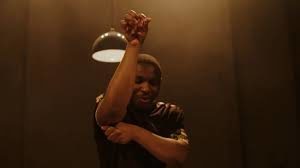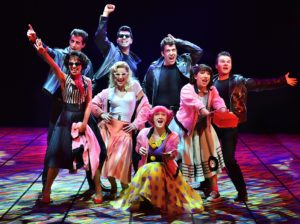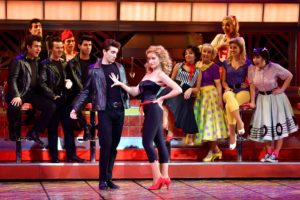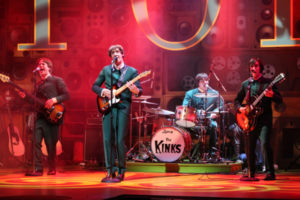 (5 / 5)
(5 / 5)
Coat is a solo play performed and written by Yomi Sode. Coat exhibits Yomi’s life growing up as an English citizen with Nigerian descent. What better way to not only present a personal autobiography reflective of his life, but also create sensory through delicious smells to escort the audiences mind in to Yomi’s world.
The layout of the set was an interior design kitchen, featuring compartments as well as electric hobs installed to embody a stove; where he prepped his basmati rice, tomato stew and marinated chicken breasts. The aromatic smells majestically presented the feel of an enticing household, with a kitchen surface fused with ingredients ready to cook with. As the sweet smelling aromas emitted into the atmosphere with smoke ascending from the pots steaming into Yomi’s face, he stood there smiling to himself in the mists of his busy environment slicing, stirring and calling out to his mum for her acknowledgment.
Coat explores the themes of identity, belonging and origin, documenting real life scenario’s and issues growing up in London. When you’re not entirely understood, shown appreciation of your cultural differences, underrepresented in the media, being an ethnic minority in your school so frequently hear miss-pronunciation’s of your name when called by the tutor, leading to mockery and ignorance from peers, not realising the emotional damage it causes. Ashamed of being seen wearing traditional dress wear, feeling convicted when confronted and being contradicting when questioned to whether he’d identified as a Black British, a Londoner or as a Nigerian. Confused, misguided and unappreciated when he does answer and having respect lost and feeling detached from himself.
Not black enough when living in the UK, not African enough for not speaking the Native tongue and facing flaws of not feeling man enough. The narrative in Coat did a good job in portraying mental conflict, emotional battles and the complications of juggling two cultures. A production reflecting personal insight in to Yomi’s tradition and up-bringing from a boy into a man by his mum; reaching a state of appreciating how to cook a traditional dish, receive acknowledgment from his mum and peace of mind once he knows who he is and where he’s from.
Coat is hysterical as Yomi uses multi-rolling techniques to impersonate several roles brilliantly including his mother, marked by the changing of voices, movement, gesture and body language. An organically humorous and culturally entertaining, emotionally impacting play, that’s full of relatable, iconic scenes with incorporated elements of spoken word.
Tanica Psalmist








 (4 / 5)
(4 / 5)
